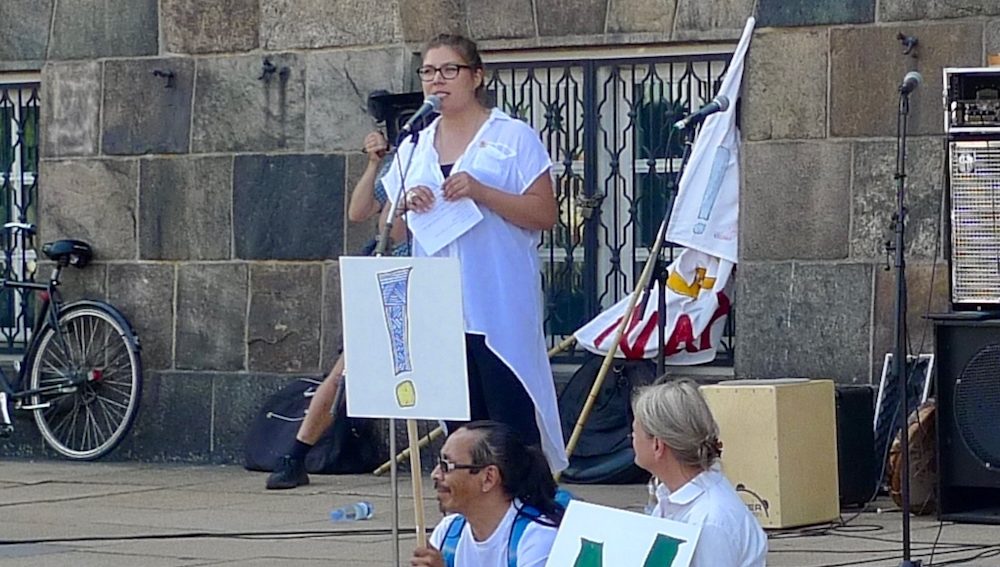Greenland opposition leader is stepping down, citing a toxic political climate
One of the most prominent figures of Greenlandic politics in recent years has grown weary of a legislature she says stifles criticism and turns out shoddy legislation.

For the better part of a decade, politics in Greenland has been synonymous with Sara Olsvig. But, on November 5, the Greenlandic opposition leader, who earned more votes than any other candidate in the most recent election, in April, will step down as head of her party and resign her seat in Inatsisartut, the national assembly. The departure is the latest upheaval in a tumultuous year in Greenlandic politics.
Announcing the decision on Monday, Olsvig cited a vicious, unproductive political climate that attacked critical voices and resulted in the passage of legislation that had not been fully considered.
“Dialogue, professionalism, thoroughness — these elements are absent from our deliberations in of too many of the issues we are dealing with today, and I can no longer be a part of it. My personal limit has been reached,” she said in a statement issued in advance of the official announcement in Nuuk.
[Greenland’s two largest parties have headed their separate ways]
As an example of the problems Greenlandic politics faces, Olsvig singled out the current debate over legislation that would permit construction of three airports. IA supports the plan, which would be the largest infrastructure project in the country’s history, but the party has faced backlash from political opponents for its cautious approach to the political legwork that is necessary before Inatsisartut can give its final approval.
“Preparation of this significant piece of legislation has often seen those of us who have asked critical questions being criticized ourselves for slowing the process and asking too many questions,” Olsvig said, describing the situation as the “the final straw” that led to her decision to resign.
Prior to being elected to Inatsisartut in 2015, Olsvig represented Greenland in the Folketing, the Danish national assembly from 2011 to 2015. She was elected the IA leader in 2014.
[A new supermajority coalition government will govern Greenland]
Under her leadership, IA decided, in 2016, to join with rival party Siumut to form a supermajority coalition, led by Kim Kielsen, the current premier. IA, however, declined to join the coalition after the April election, and then again last month, when Kielsen lost his majority due a disagreement within the cabinet over funding for the airport construction. Kielsen was unable to win the support of a new majority but managed to work out a deal that allows him to govern with the support of a minority coalition.
Olsvig will remain a rank-and-file member of IA, and suggested that she is neither being forced out, nor leaving due to dissatisfaction with the party itself.